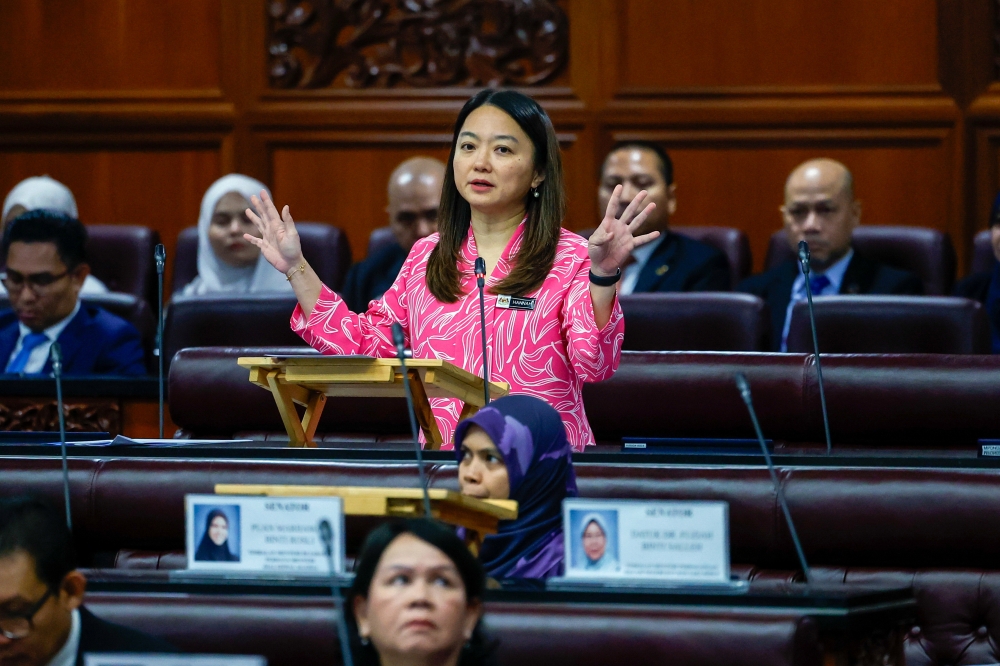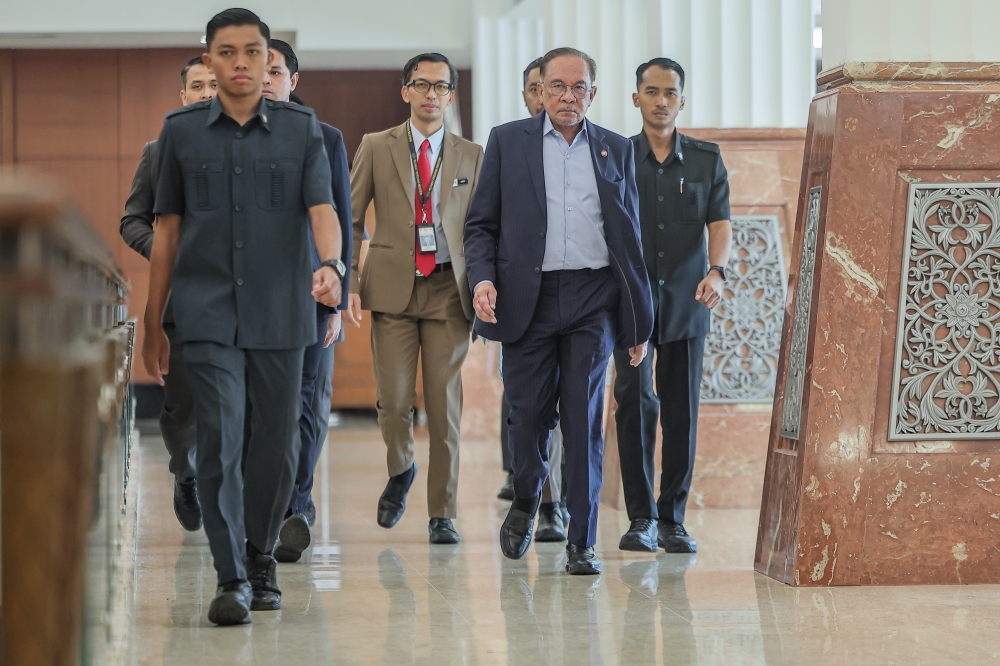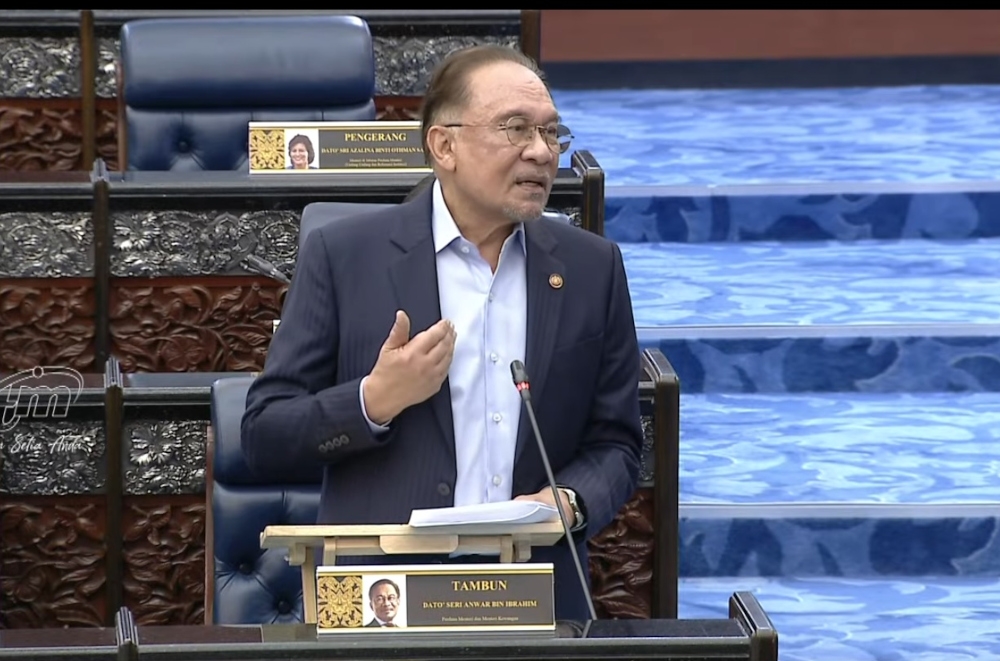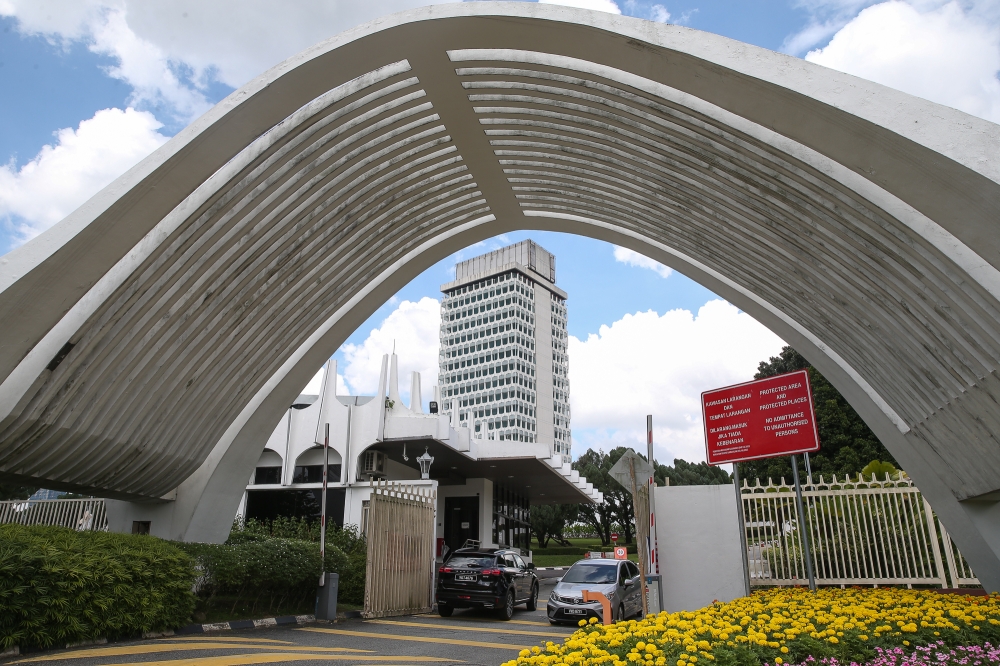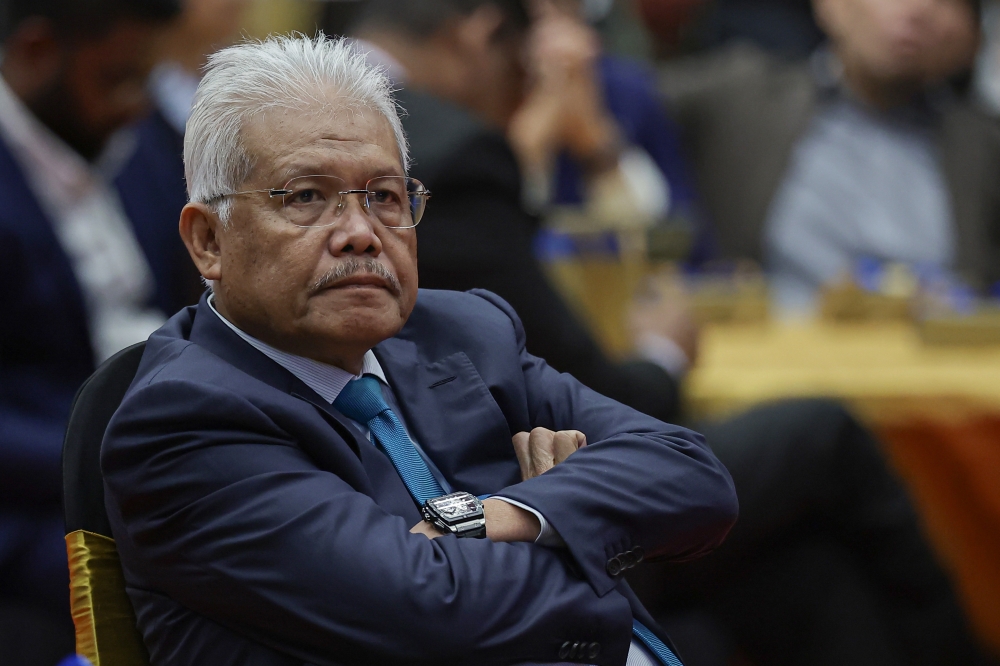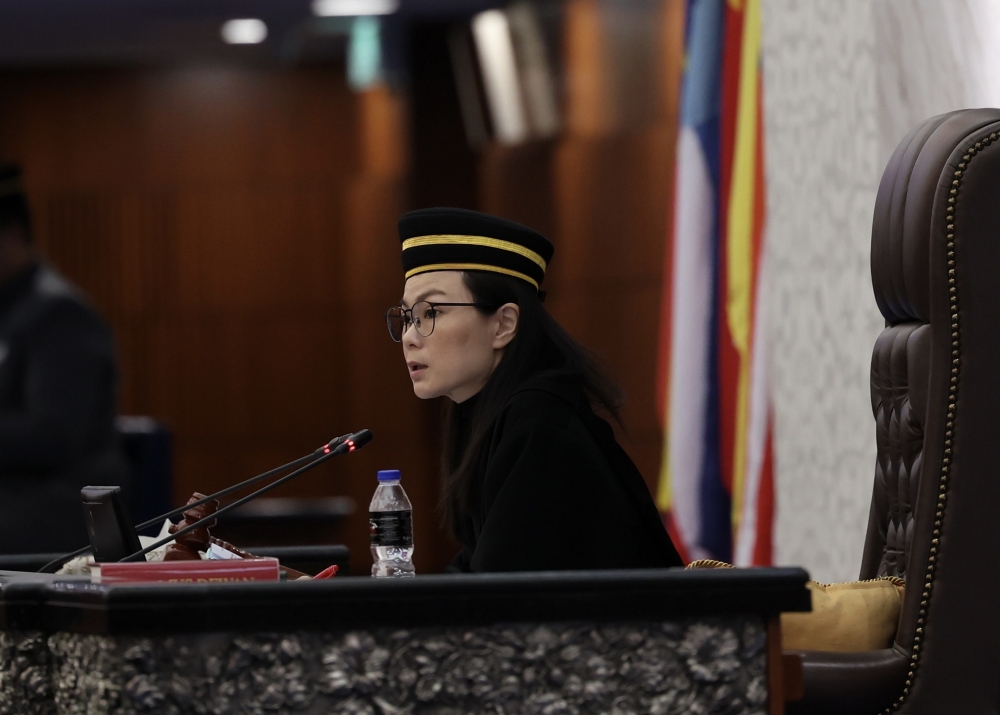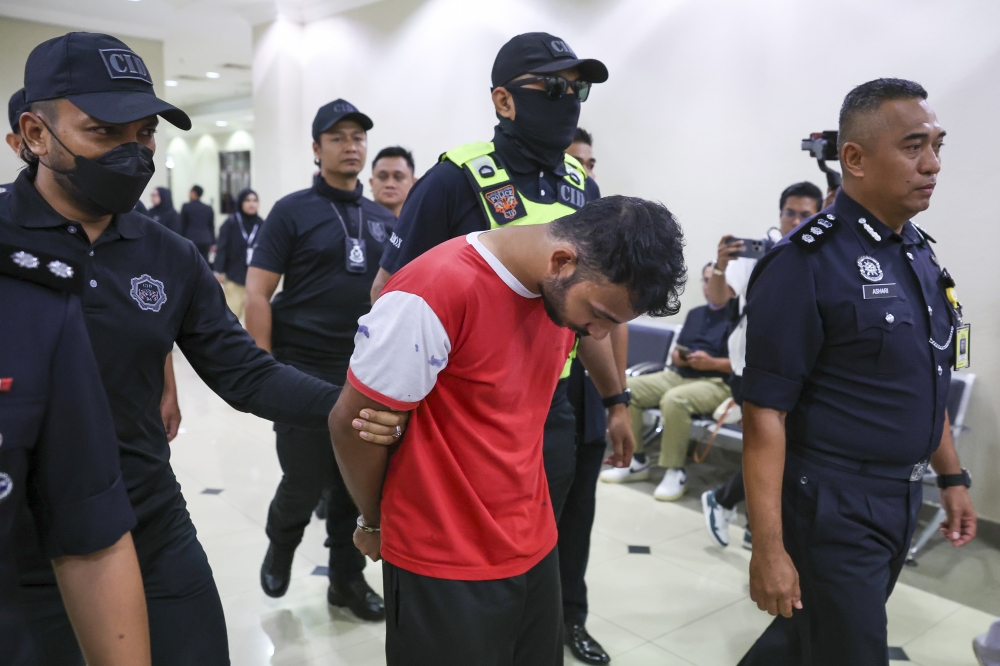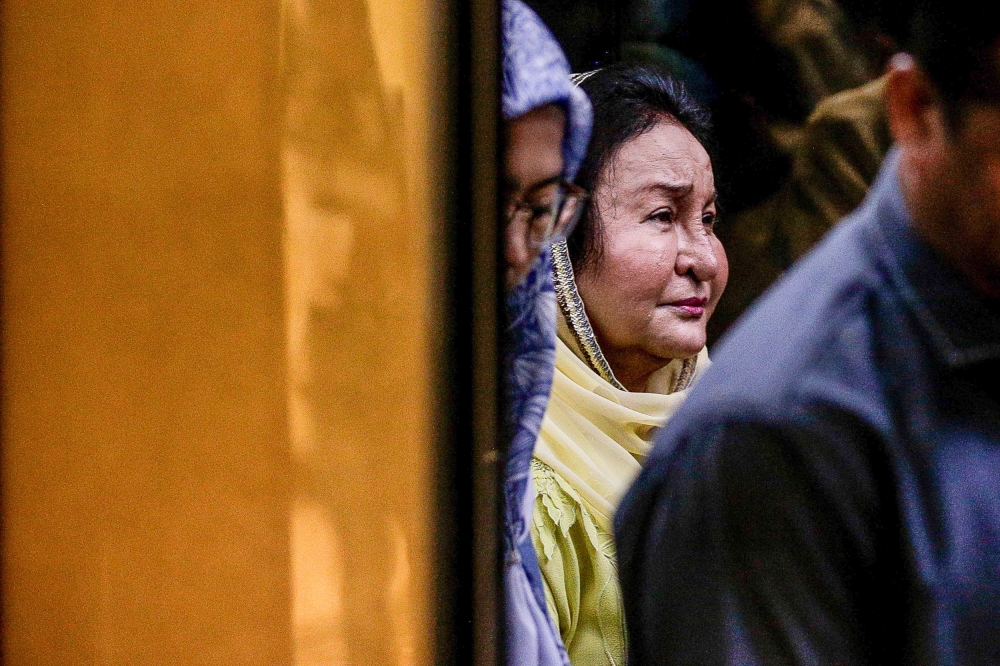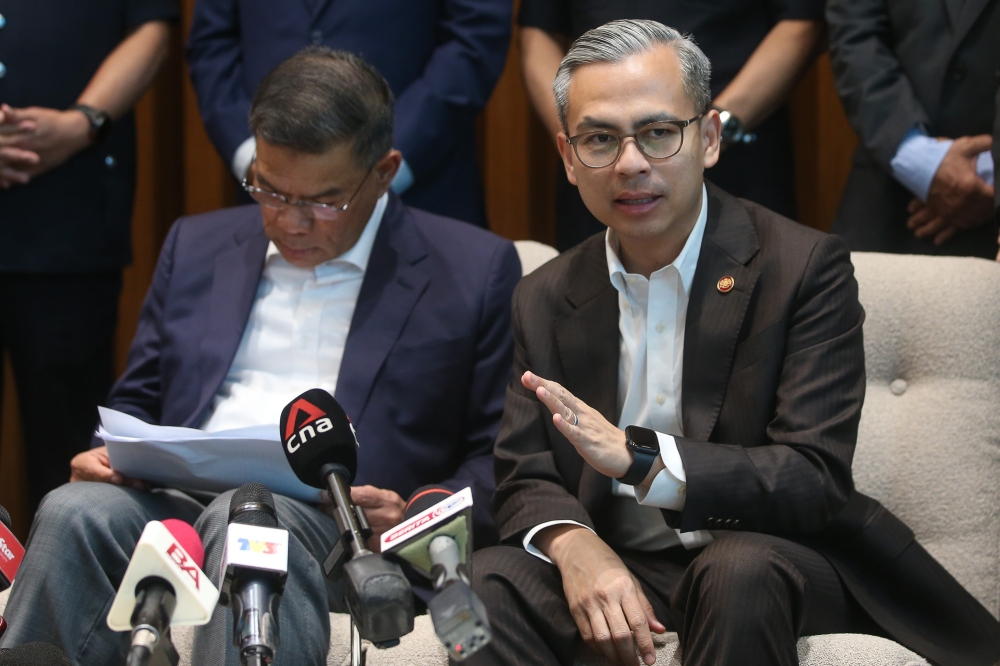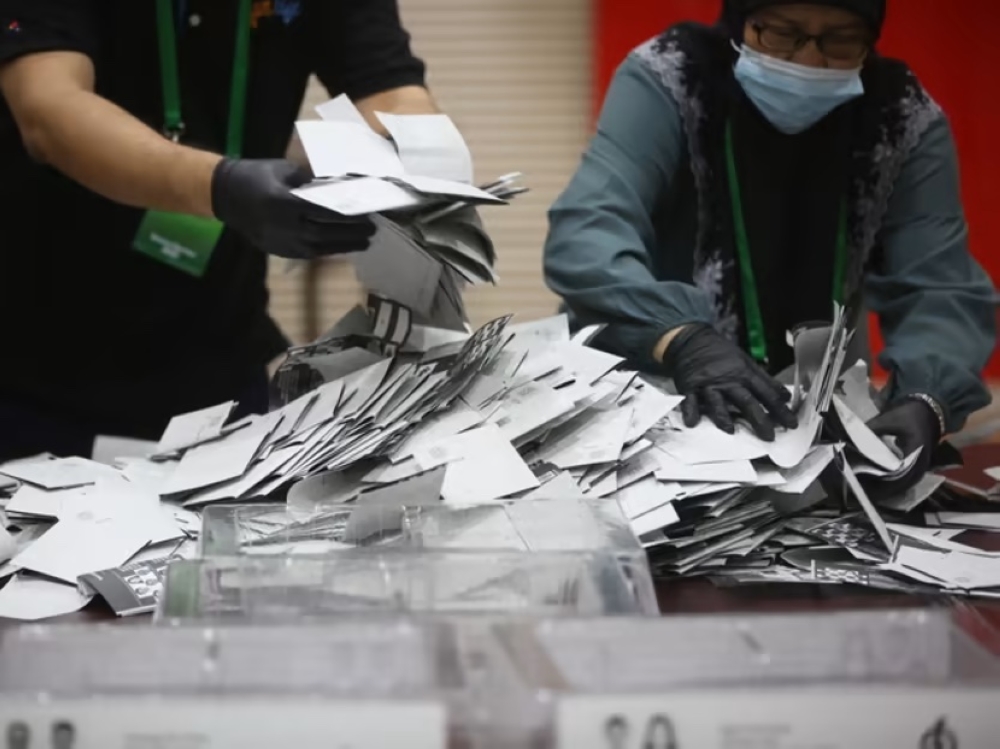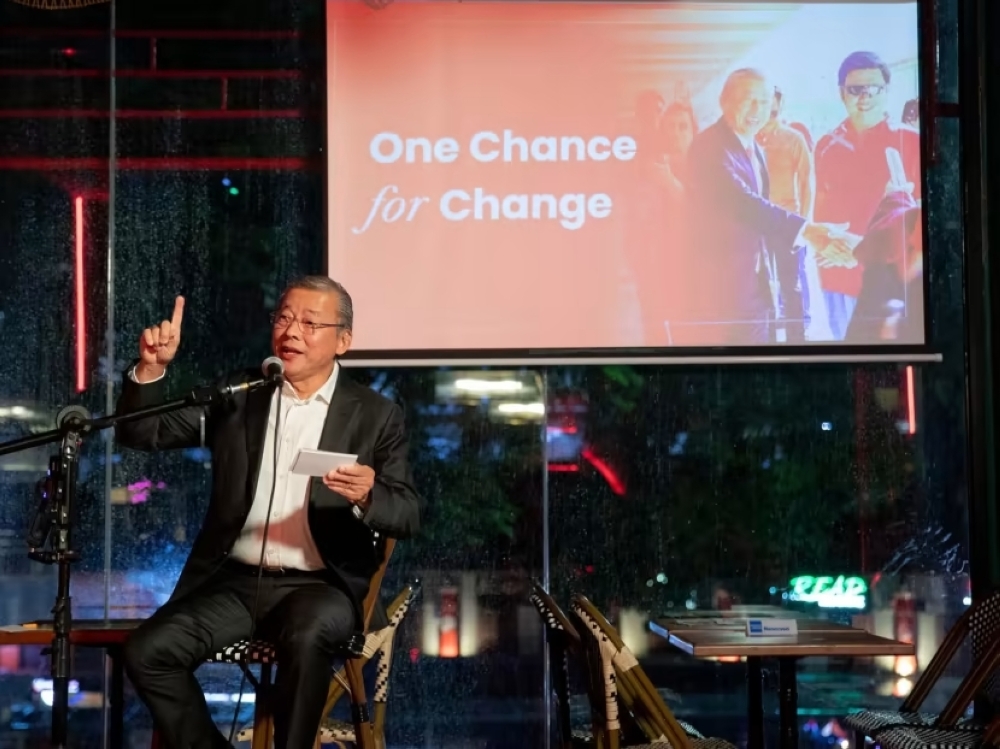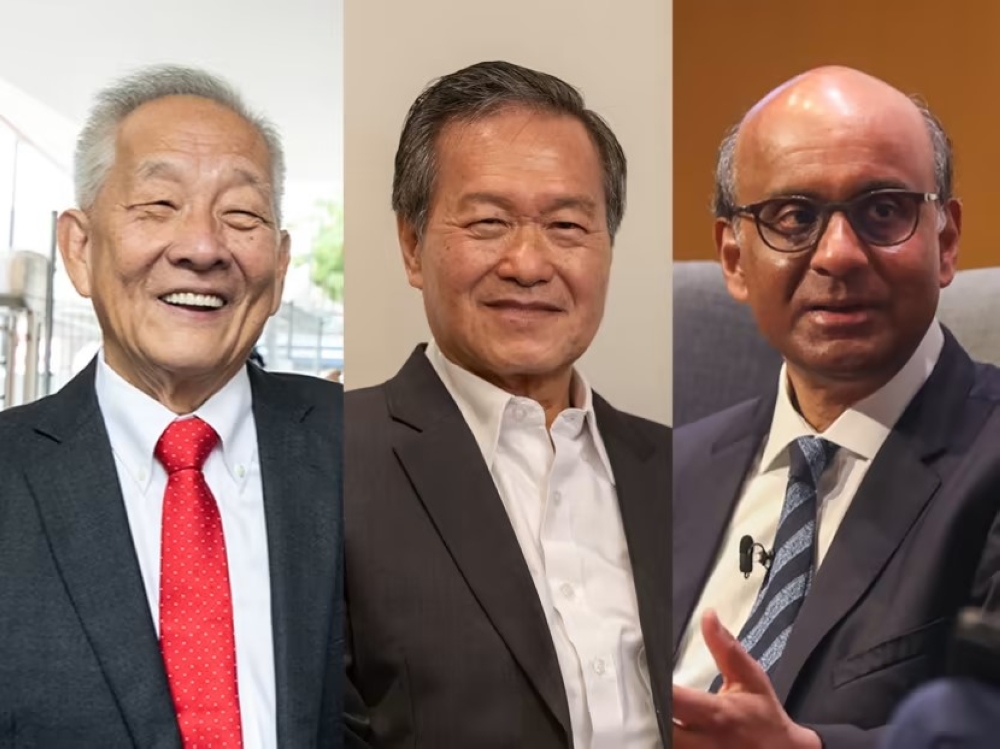SINGAPORE, Aug 19 — Now that the Presidential Election looks likely to be a three-horse race, experts said on Friday (Aug 18) that voters have a diverse slate of candidates to choose from.
Former GIC chief investment officer Ng Kok Song, former Senior Minister Tharman Shanmugaratnam, and former presidential candidate Tan Kin Lian all look set to contest the September 1 Presidential Election.
Mr George Goh, a businessman who also put his hand up to contest the election, did not receive a Certificate of Eligibility from the Presidential Elections Committee (PEC).
Mr Ng, Mr Tharman and Mr Tan also got their eligibility certificates while two other would-be candidates, who have not been identified publicly, were declined certificates along with Mr Goh.
The only remaining hurdle is for the candidates to submit their community declaration form stating if they are from the Chinese, Malay, Indian or “Other Minority” community. They then put in their nomination forms on Nomination Day on August 22.
Assuming there are no unexpected glitches, the three candidates will contest the Presidential Election.
The winner will be the candidate with the most votes. Assuming all three men proceed to contest the election, the winning candidate could be declared the victor with under 50 per cent of the vote.
For example, in a four-way race in 2011, Dr Tony Tan was elected President with 35.2 per cent of votes cast, just ahead of the 34.85 per cent won by Dr Tan Cheng Bock.
Although experts acknowledged that Mr Tharman will be a strong candidate based on his popularity, credibility and international profile, they expect a keener contest than some may think.
Before leaving politics to contest the Presidential Election, Mr Tharman was a Member of Parliament (MP) for Jurong Group Representation Constituency (GRC).
At the 2020 General Election, Mr Tharman led the six-person Jurong GRC team to a comprehensive victory by securing nearly 75 per cent of the vote. This was well above the People’s Action Party’s (PAP) overall vote of 61.2 per cent.
In terms of campaign strategies, experts said that they do not anticipate any significant changes following the confirmed slate.
However, Dr Felix Tan, a political analyst from Nanyang Technological University (NTU), said that all three candidates may tweak their campaign strategies to seek to attract those who would have supported Mr Goh had he been granted the right to contest the election.
“I think they might want to tap onto the kind of support given to George Goh, and thereby embrace certain values and things that he might have spoken and touched on as well,” he said.
These values include his independence and not being part of a political institution.
“They (the candidates) might say there’s a very loose association with the Government, they don’t belong to a political party and were not part of the Government per se. In that sense, they might use that argument that they are independent enough,” said Dr Felix Tan.
Ng Kok Song
Experts previously told TODAY that Mr Ng has positioned himself as being from the establishment but not from any political party or the Government.
However, Gillian Koh, a senior research fellow at the Institute of Policy Studies (IPS), said that Mr Ng is still part of the establishment even though he was never a part of the ruling PAP.
Agreeing, Felix Tan said: “While he has said that he’s more independent, he was part of GIC. And thereby having some sort of Government aspect might not necessarily make him as independent as one feels.”
Associate Professor Eugene Tan, a law lecturer at the Singapore Management University (SMU), said that Mr Ng will now seek to position himself as a “candidate with a niche position” — that he has no political affiliation unlike the other two contenders.
Whether Mr Ng will likely draw middle-ground votes away from Mr Tharman, Assoc Prof Eugene Tan said that he cannot say for sure as campaign strategies may shift.
So far Mr Ng, as with Mr Tharman, has sought to have a broad-based appeal. Now that the field is confirmed, Mr Ng may well think it advantageous for him to position himself as such, said Assoc Prof Tan.
“But he will likely have to deal with attempts by Mr Tan (Kin Lian) to have him (Mr Ng) regarded as an establishment candidate like Mr Tharman.”
Tan Kin Lian
Experts say that Mr Tan Kin Lian has positioned himself as the anti-establishment candidate, given that he is not associated with the Government or a state institution.
He was, however, chief executive officer of NTUC Income for some years.
The insurer has its roots in the National Trades Union Congress (NTUC), a union body that while separate from the Government is nevertheless a key part of how Singapore maintains industrial harmony.
In announcing his bid this month, he said that his seconder is opposition politician and lawyer Lim Tean.
On how Mr Tan Kin Lian’s campaign strategy may be tweaked, Assoc Prof Tan said that Mr Tan will have to assure voters that he is serious about contesting given his “flip-flops” since he first announced his intention to run.
On what he can do to avoid a repeat of 2011’s election loss, Felix Tan of NTU said that Mr Tan Kin Lian should be familiar with the roles that he wants to fight for.
However, Assistant Professor Walid Jumblatt Abdullah from NTU said that there is nothing much that Mr Tan Kin Lian can do to improve his odds. Instead, how he fares depends on how voters view him and what he represents.
“For now it’s who the anti-establishment voters see as their candidate,” he said.
Some may choose Mr Ng who is not from the PAP but seen as an establishment candidate and has a chance of winning.
However, some may think that Mr Ng may not win anyway and instead choose the “truly anti-establishment” candidate, he said.
Tharman Shanmugaratnam
Mr Tharman, the establishment candidate, has positioned himself as a well-regarded political leader who is recognised as a significant intellect and policy expert internationally.
Although widely assumed to be a front-runner, experts say that this sentiment could backfire for Mr Tharman.
Felix Tan, the political analyst from NTU, said that there may be more voters who say “since he’s going to win, then my vote will not be given to him, but I’ll give it to someone else”.
This is often referred by political scientists around the world as a “protest vote” in the sense that the voter is simply lodging a protest against the establishment candidate with little or no expectation he will lose.
“And because of that sort of argument, the vote share given to Tharman might be reduced, and might be given to someone else who voters feel it’s better to give to,” he said.
Asst Prof Walid Jumblatt added that the Presidential Election is about more than just one’s popularity and credibility.
“In a Presidential Election, the stakes are far less so people are more willing to vote against the establishment candidates,” he said.
Thus, Assoc Prof Eugene Tan said that he foresees Mr Tharman’s strategy will be to emphasise the message that if voters want him to be president to vote for him as a close contest could easily turn into an upset. — TODAY

